Are you trying to decide what roosters are good for? If you’re a backyard chicken farmer, you’re probably having lots of fun getting to know your flock. Did you know that roosters can bring some unique benefits to your flock?
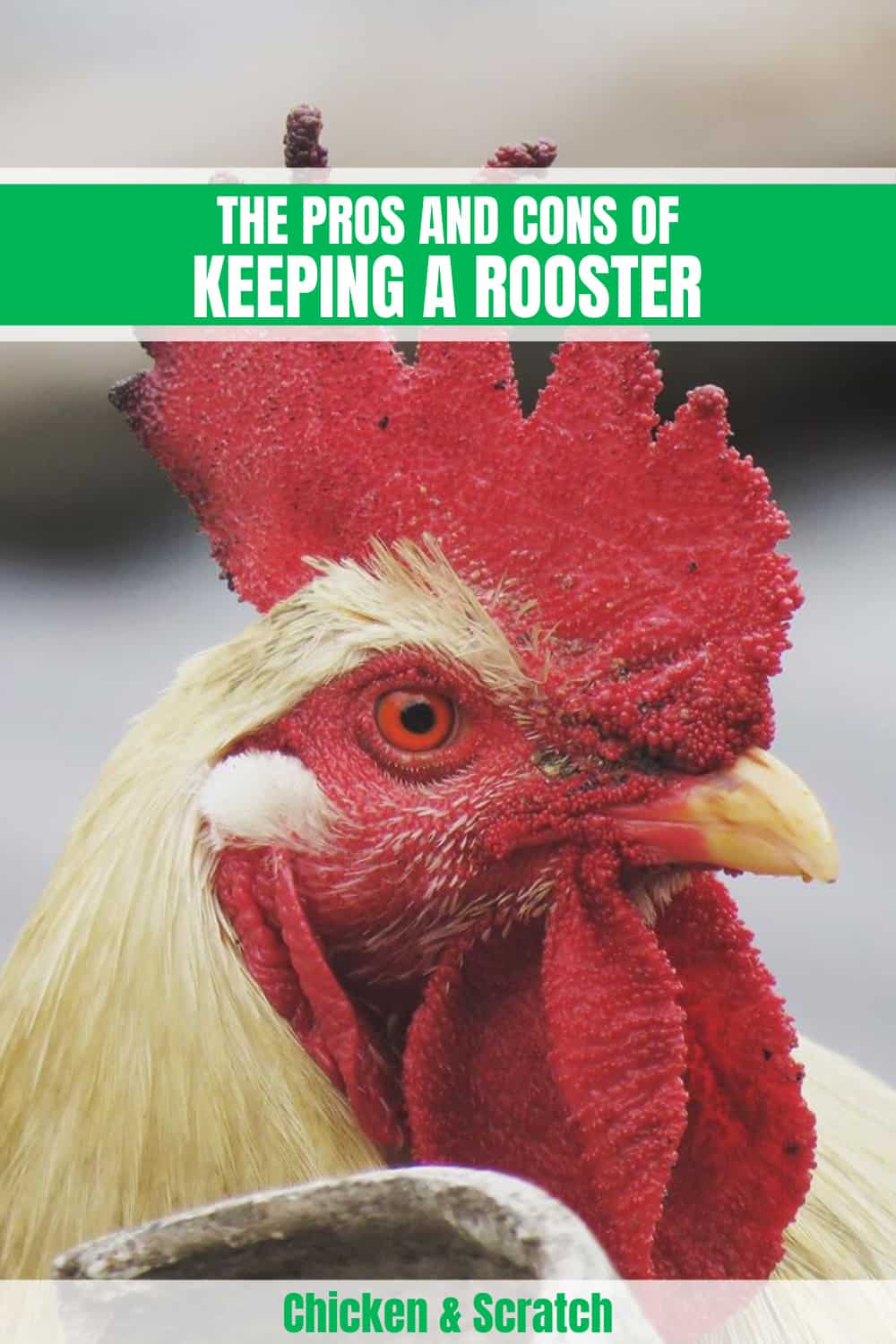
It might surprise you that having a rooster will help keep your flock safe, happy, and well-fed. Of course, if you’re keen to try raising chicks, having a rooster is essential.
So today, I’ll share why roosters are a fantastic addition to your feathered family.
No Rooster, No Chicks!
It’s basic biology! You won’t get chicks if you don’t have a healthy rooster to mate with your hens. I get asked about how roosters impregnate chickens often. Chickens’ reproduction system is unique. They do not breed akin to what mammals do.
When the rooster is ready to mate, he will make a display to a hen. The hen will lower herself with the cloaca—also known as the vent—tilted upward. The rooster will mount the hen, often using his beak and spurs (fearsome sharp claws on the back of the feet) to hold on and maintain balance.
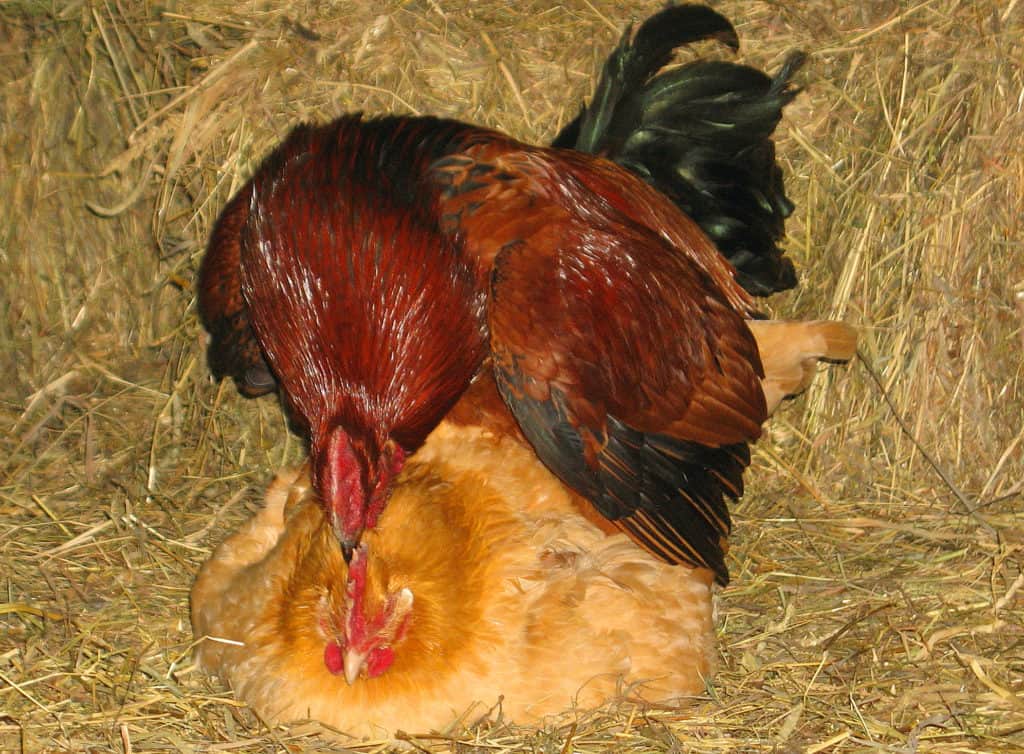
He will tilt his cloaca downward, and the two vents will meet, sometimes only for seconds. Then, the sperm transfers to the hen from the rooster. Rooster sperm will stay in the oviduct for up to three weeks and potentially fertilize the ova. The albumen (egg white) and shell form around the yolk after the fertilization process is complete.
It’s good to be aware that roosters will mate with reluctant hens and may mate with them too often if there are not enough hens in the flock. So, keep around 8-10 hens per rooster to ensure a safe breeding rotation. Also—hens aren’t monogamous—they may have multiple suitors.
It is common knowledge to some, but I will add—chickens don’t need a rooster to lay eggs. Hens will happily and naturally lay eggs on their hormonal cycles and times of the year. You only need a rooster if you want to hatch chicks.
Fertilized Eggs Can Be Profitable
It can be very profitable for backyard farmers to sell fertilized eggs. People interested in raising their flocks may purchase fertilized eggs to incubate and hatch. It is often the cheapest way to start a home flock. Purchasing chicks or pullets (young chickens ready to start laying) is usually more expensive.
Some people believe eating fertilized eggs has additional health benefits and will happily pay a premium for them. I will not tell you if the health claims are correct (or not)—that’s up to you! But if you find people willing to pay extra, that rooster in your flock can help you turn a tidy profit.
Roosters Are Very Protective
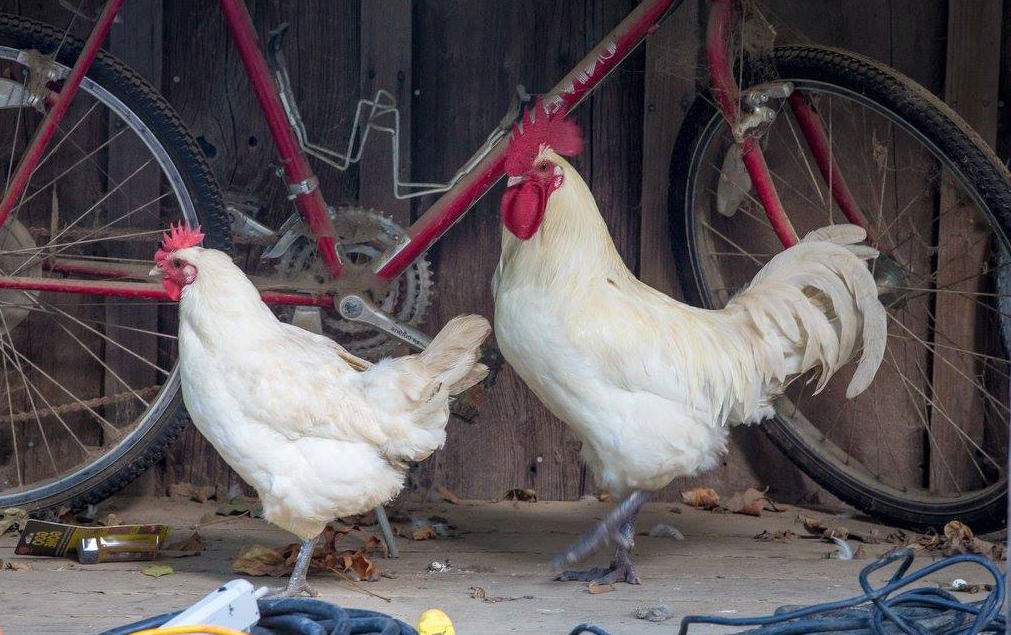
Like in much of the animal kingdom, roosters will act to protect both hens and chicks from predators. A rooster could be very beneficial if you have a problem with possums, rats, or other rodents. Roosters will fight aggressively against threats, sometimes to the death.
If a rooster detects a threat approaching, he will issue a particular call that will send the flock running for the protection of the coop. He’ll be left alone; to bravely face the intruder—what a guy!
This trait is usually helpful, but there is one thing to watch out for. Roosters may sometimes mistake adults and curious children as threats. It may lead to him attacking visitors or members of the family. If this is the case, ensure to create access to the nesting boxes that don’t require entering the ranging area.
Roosters Can Help Keep Your Hens Well Fed
What are roosters good for? Diversifying the diet of your hens, that’s what. If you allow your flock to free range around your yard, you may be lucky to watch a rooster deliver tasty treats to a hen. If a rooster finds a bug, rodent, or other notable hen candy, he will drop it in front of a chicken and cluck.
When the hen isn’t paying attention, he’ll pick it up and drop it again until the hen is convinced, and she’ll gobble it up. Roosters rarely take these morsels for themselves. They will happily go without to make sure the flock is well-fed.
Flock Politics
In the wild, a flock of hens will have one rooster with them—at all times. The rooster provides protection, as I mentioned above, but he also does essential work within the flock. He can help protect weaker females from stronger ones.
Sometimes more powerful hens can harass younger or less healthy hens (where the term ‘hen-pecked’ comes from). It is because every flock is genetically biased toward having a dominant leader. A rooster helps keep this aggression to a minimum by providing a balance of power.
Roosters Look Great
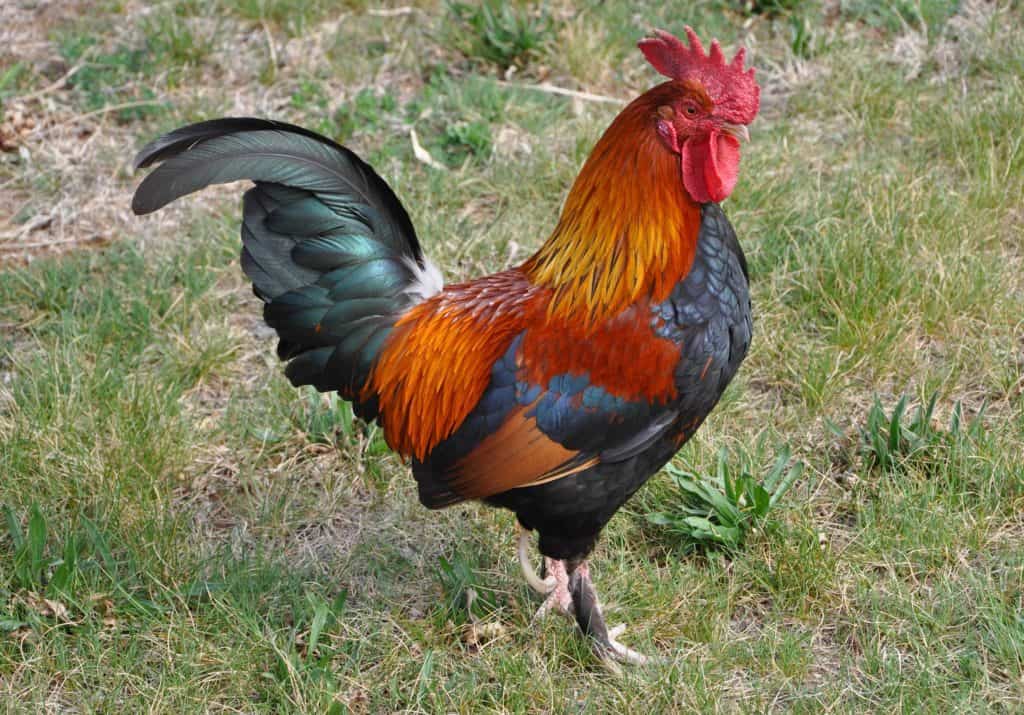
Roosters are good for adding some visual excitement to your backyard flock. Let’s face it—a full comb and brilliant tail display are (both) very eye-catching! Having a rooster will add color and a sense of completeness to your ideal flock.
Like hens, roosters have their personality. You can get to know your rooster while admiring its beautiful plumage. It will act very differently from the hens, so watch its quirks unfold. At least it’ll be easy to spot!
Roosters Crow
Everybody knows that roosters can be noisy. And you might be wondering if this is a good thing or not. Truthfully, there’s a sense of satisfaction in hearing your rooster crowing heartily. It won’t just crow at dawn but also at other times of the day.
Remember I said that roosters will crow to alert hens to threats? If you hear your rooster singing out during the day, you may have an intruder or a rodent threatening the flock. Pay attention to his calls, and you can help protect your girls, too.
Roosters will also crow if they are unhappy with their living conditions. I consider this to be a benefit! It’s an excellent motivator for you to keep the coop clean and remember to provide fresh food and water to the flock. If you do this regularly, there might be a bit less crowing during the day.
One thing to be mindful of is your local county or state ordinances. Some locations prohibit backyard farmers from keeping roosters due to their crowing. If this is the case for you, there may be no way to keep a rooster, unfortunately. It’s worth checking in with your local authorities.
Roosters Make Tasty Dinners
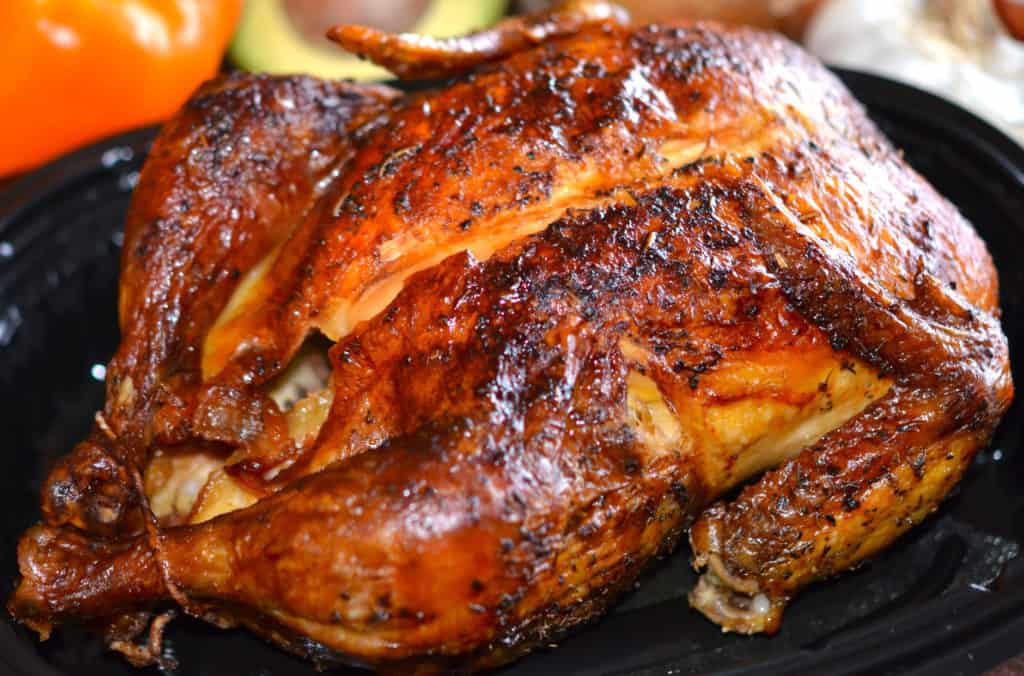
In reality, most backyard flocks will only need one rooster. Having more of them can create nasty power struggles, which leads to injuries and illness between roosters.
If you allow your chickens to breed, it will take a short time to determine which chicks are hens and which are roosters. It’s often difficult to sell or give away roosters because they are in low demand compared to hens.
Because of this, some backyard farmers raise their extra roosters until they are of a good size and then process them, dress them, and prepare them for dinner. You can pay someone to do this for you if you are squeamish.
Rooster meat is no different from chicken meat. It can provide a good amount of meat from around 16 weeks old. Younger meat is more tender. If you wait until your rooster is much older, the meat may be better suited to slow cooking methods.
Frequently Asked Questions
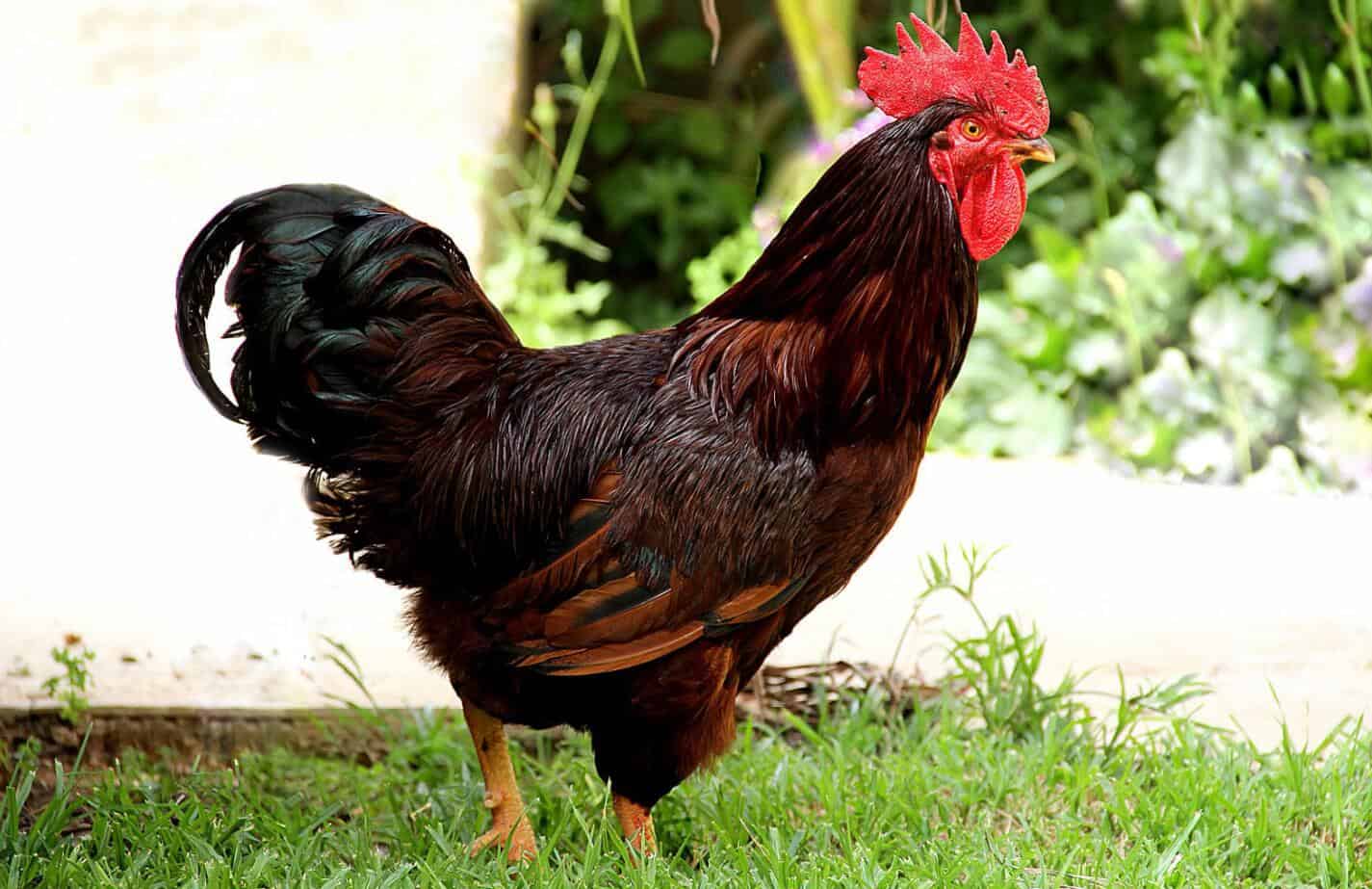
1. Are hens happier with a rooster?
With everything in place and a sense of security—it is no question that it makes hens happy. Also, they get special attention from the roosters, like receiving food and care. I mean, who wouldn’t feel joyous if you could move freely without thinking of predators or the risk of getting bullied by other coop mates?
2. How hard is it to take care of a rooster?
Taking care of a rooster is like taking care of hens; you still need to provide a clean environment, a balanced diet, and clean water. It also means cleaning the droppings, refilling, and changing the water daily.
But of course, you have to deal with their noise. So how you perceive it is the only thing that would differ. Would you see it as a stress-stimulating sound? Or an alarm for possible threats?
3. How often do roosters mate?
Roosters are very active creatures. They can mate at a minimum of 10 times per day. But this also differs based on the number of hens and roosters around. If the rooster mates frequently, you can expect low levels of fertility. Why so? Repeated mating can cause a decrease in the release of the required amount of sperm, thereby reducing the chance of sperm fertilizing an egg.
4. Will roosters get into a fight if there are no hens?
Roosters often fight to impress a hen or establish dominance. But with that out of the picture, you can generally expect the scene to be peaceful. If you plan to form a rooster flock, there are some points to follow:
- Allocate at least 35-50 square feet per rooster in your outdoor space. They like their territory and stretch to explore.
- Provide multiple feeding and water areas so no rooster takes ownership of one spot.
- It is also better to give each a perching area far away from each other.
- If you have a strong alpha among the flock, fighting is less likely to happen.
Wrap Up
So what do you think? Have I convinced you that roosters make a valuable addition to your coop? I love hearing the hearty call of the rooster in the morning, even if it is a little earlier than I’d like. Here are my top reasons why keeping a rooster is a good idea:
- They look and sound fantastic—it’s not hard to imagine that you’re on an idyllic country farm.
- Roosters can help diversify the diet of your hens.
- Roosters provide order and protection to the flock.
- Watching roosters and hens interact provides hours of entertainment.
- You’ll need a rooster if you want to raise chicks or sell fertilized eggs for profit.
- Roosters make good eating if you’re willing to do the difficult job of processing them at home.
Now it’s over to you! Tell me all about why you love your rooster. What breeds do you like best, and why? Have you found benefits from keeping a rooster with your flock? Have you had some exciting hatching experiences? Watching little day-old chicks fluffball around is one of my favorite things. Please leave your comments below. I can’t wait to read them!

Joseph Hudson has been raising chickens for over 15 years. In 2018, he completed the Agriculture & Natural Resources program at Mt. San Antonio College. He currently raises over 1400 chickens on his 7.5-hectare farm. He keeps sharing his experience on raising healthy and happy chickens on Chicken Scratch The Foundry.







Roosters are pretty and all but they rape hens a lot and brutally, too. That really bugs me. Plus, the ones I have even go as far as chasing hens away from food. So, I’d rather have no rooster. Besides, hens can find treats and defend themselves, really
We started raising chickens for the eggs and meat. We decided to get a couple of roosters for firtle eggs so we could hatch eggs for rotation. Now I feel we end up with to many roosters. We killed the first batch about 9 roosters and hardly any meat on them. My husband seems to enjoy this chicken thing but I’m not anymore.
I bought 4 new chicks for the eggs & found 2 of the chicks are roosters. I’m not disappointed, we enjoy hearing the crowing & they’re both friendly to us humans and are now mingling with the rest of the flock just fine. They come running when I call for their apple treats right along with the rest of the “chickas”!
My husband and I incubated 6 eggs and only one hatched it was the smallest egg too🐣 I named him Little Peep,, 🐤when he was like 2 months old, he’s trying to make it a strange noise he was make it almost every morning, and I wasn’t sure what it was I thought it was sick but when he turned 3 months old he started crowing really good and really loud 🐓 now he crows constantly, I keep for my cage in the house, I’m very protective over him so I’m not sure about leaving him outside all night yet 🤔 I guess I’m having separation anxiety 😂 I’m also not sure about putting him with my neighbor’s 12 Hens, he would really be crowing then huh 😂